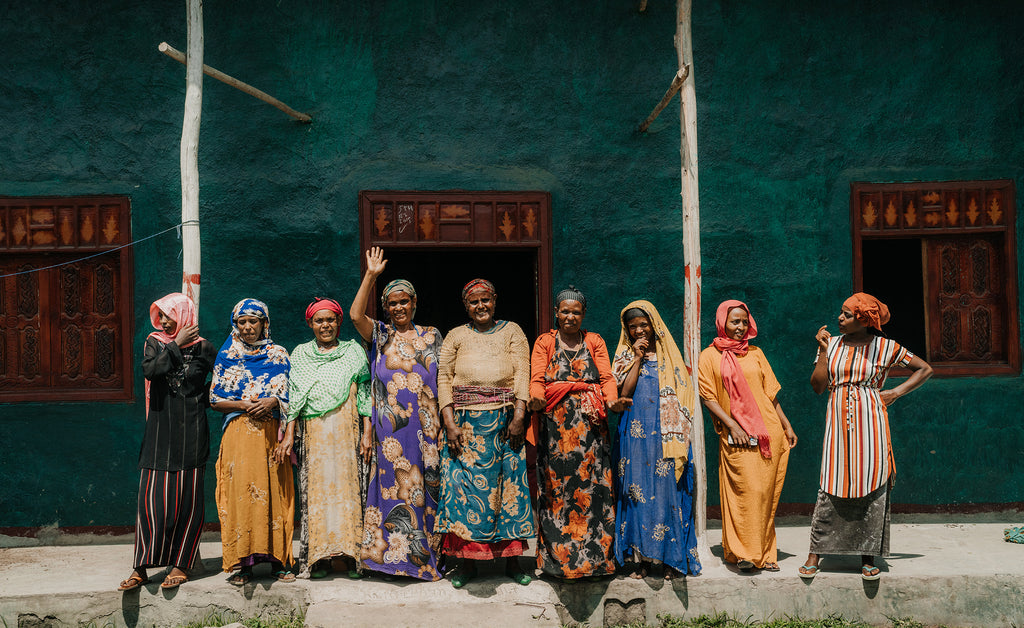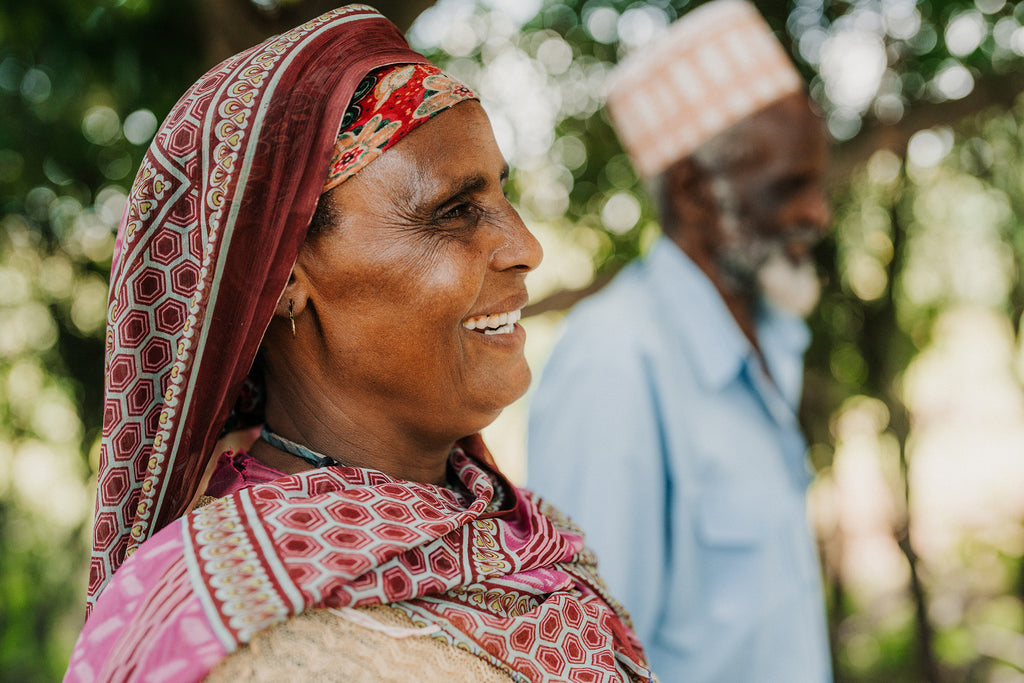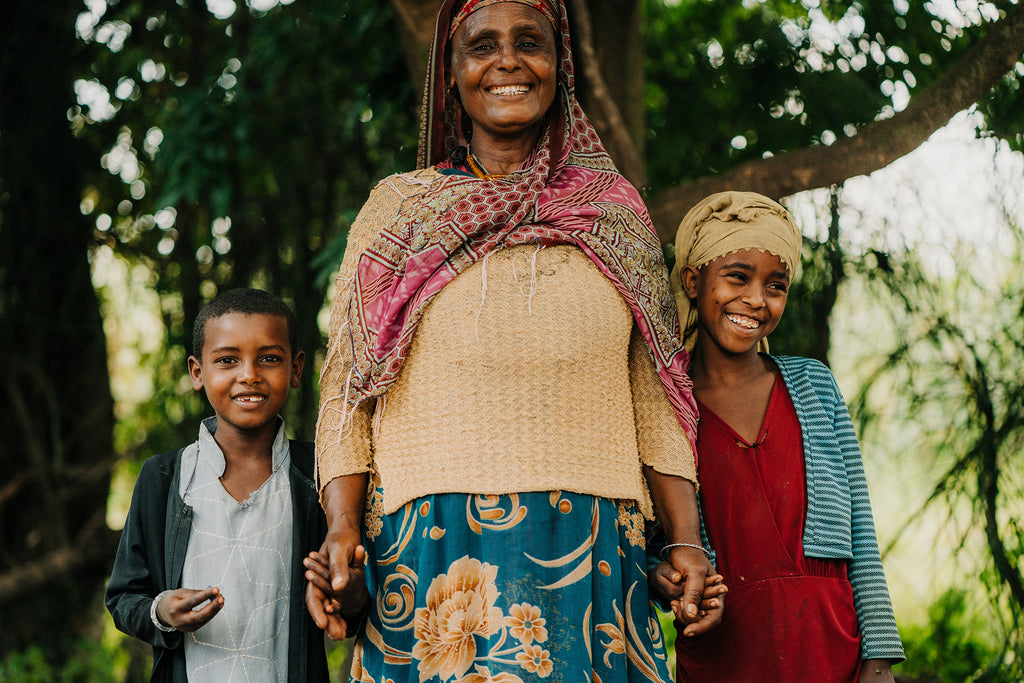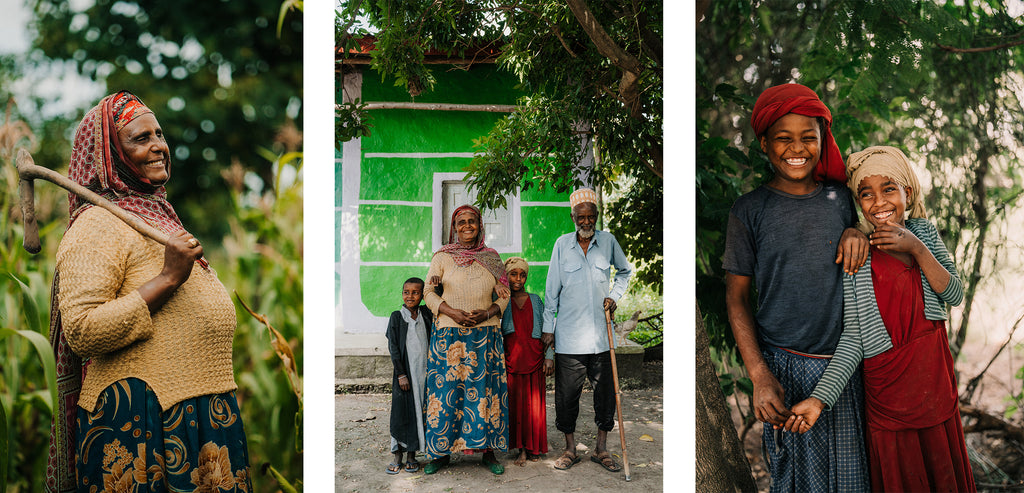Her joy was palpable as we stepped into her village.
One of the first women to greet our team, Ababech quickly introduced herself, clasping our hands strongly, thanking us for everything neverthirst had done.
We were slated to interview her the following day, but she couldn’t wait. We were immediately invited into her home for a coffee ceremony.
Hospitality was her language of gratitude.
Neighboring women quickly came and helped Ababech, pausing to sing and dance and make sure our team felt welcome in her home as they prepared coffee, bread, and corn.

This is what clean water means to these women—living in a very poor area of Ethiopia yet serving us their best offerings… because their futures just changed forever.
Serving an Unreached Region of Ethiopia
On this particular trip, our team was meeting families in one of the most unreached regions of Ethiopia:
- This region holds about 400,000 people, but only 22% of the population has access to clean water right now.
- One-third of children under age 5 are regularly sick with diarrhea and waterborne illnesses—in a region where obtaining medicine is financially and geographically difficult.
- The dominant religion in this area is Islam (94%) with Christians in the minority at just 1%.
And for young girls growing up in this region, life is even more difficult. Parents often see no choice but to take their children out of school, and it’s mostly girls who need to stop their education to assist their mothers with collecting water, caring for animals, and taking care of their siblings.
And no other organization is working in this region to meet urgent needs for clean water and sharing God’s love.
Ababech’s village just received a clean water tap—right near her home—as part of one of the most complex neverthirst water projects to date. A massive solar panel field powers a submersible pump that supplies water through 7 miles of underground piping to 4 neighboring villages. This project in total serves thousands with access to clean water. Learn about funding an individual tap stand here.
What Her Life Was Like Before
As we spoke with Ababech, she responded passionately. This woman is a leader in her community, respected by others, and a fierce advocate for her two girls. These are her own words about her life before clean water:

“Before, we used to collect water from the river. We had to drink it sparingly and I was often thirsty so my children could have something to drink. The water we collected was very dirty and made my family get sick a lot—often with malaria.
We had to travel 4 to 5 hours every day to collect water and had to carry it on our backs. And as women, the burden of collecting water fell on our shoulders.
One time, we sent the children with our donkeys to collect water for the family and they were chased up trees by hyenas. They had to watch the hyenas kill the donkeys that we had just saved up to purchase… and they were terrified.”
But then things changed.
“Now, we are no longer thirsty and can drink as much water as we need and take baths as much as we like. Our joy and happiness is immeasurable. I never imagined that our village could have access to clean water like in the city.
Now, my children are able to attend school. This is a huge change in our lives, because this was something we couldn’t do before and now my children can have an education. We are so happy and grateful for the water project.”

“The confidence of my children has grown through this project. They are eager to learn and believe that their education can help the nation.
As for me, now I have time to tend to my garden and weed the crops. I am able to work inside the home and make meals for my family, especially lunch. We don’t get hungry and thirsty now.”

How Her Daughters’ Futures Changed
Ababech spoke about the day clean water came to their village… the women truly couldn’t believe it. She realized she was witnessing her daughters’ futures change forever.
“My daughters have big plans when they complete their education to serve the nation in administration offices. They feel that their education can help the nation.”
That reality wasn’t possible for Ababech. Nor for her mother or grandmother. But now? Better health. A longer education. Time to garden and produce an income. Space to rest and be a family.
All possible because of clean water.
You can impact a mom and her daughters with clean and living water.
Every $40 given changes the story of an unreached woman in need. Every $240 serves a woman and her entire family. Give today and directly impact their futures.
